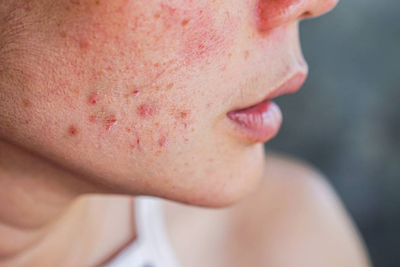
Best Natural Alternatives To Metformin
If metformin isn't for you, what natural alternatives are out there?
Metformin is the most commonly prescribed medication for women with PCOS. It's considered an insulin-sensitizing drug, helping to reverse insulin resistance (IR). Metformin is actually a type II diabetes medication but, because many women with PCOS have issues with blood sugar levels and IR, it's often prescribed.
Early beliefs were that Metformin was a wonder drug for PCOS but, as time as gone on and with more anecdotal and clinical evidence, results have been underwhelming of early hopes. This is due, in part, to the individual, and complex nature of PCOS.
There are many natural alternatives to Metformin that you should be following, either alongside your Metformin or, if you simply cannot take Metformin due to the side effects.
Best Natural Alternatives To Metformin
1) RESISTANCE EXERCISE
Resistance exercise is any form of exercise that puts your body under an external force. So, things like weights, the machines at the gym, dumbbells, kettlebells etc. Resistance exercise helps to build lean muscle tissue, which in turn, increases your insulin sensitivity.
In one study, a group of insulin-resistant adults who engaged in 30 minutes of moderate walking 3 to 7 days per week for six months succeeded in reversing their insulin resistance! This was without changing their diets or losing any body weight (although their body proportions of fat and muscle likely changed for the better).
Within another PCOS specific study, In the women who exercised they found reductions in cardiometabolic risk factors including insulin resistance, triglycerides, and visceral fat were observed without significant weight loss. This shows that weight loss should not be the sole focus of exercise programs.
So, you shouldn't just look at exercise as a tool to help you burn X amount of calories or lose X amount of weight. Exercise is a tool to literally improve your PCOS by improving your hormonal and metabolic balance.
2) LOW-MODERATE CARB DIET
Insulin resistance is made worse by high carb, high sugar diets due to their impact on blood sugar levels, and therefore, insulin production. Why is that?
Insulin is released by your pancreas in response to your blood sugar levels rising, like after a meal. In our western diet, our meals are always filled with quick processing carbohydrates, this leads to quick, and large spikes in blood sugar. And you know what that means, don't you? yep, equally quick and large spikes in insulin levels.
Out of your 3 macronutrients (carbohydrate, protein and fat), it is carbohydrate which has the greatest effect in raising blood glucose levels. Protein and fat can also raise blood sugar levels but to a much lower extent than carbs.
Following a low carb diet, I've found 20%-30% of your overall diet to come from carbs, generally, nowadays people's diet will be anywhere from 60%-70% carbs, to be the perfect spot for optimal low carb/enjoyment/freedom, and results.
3) INOSITOL
Inositol is a vitamin-like substance that acts as a second insulin signal in insulin-resistant cells. This means that blood sugar can get into the cells that need it instead of it being blocked due to the cells being resistant.
This helps to reverse your insulin resistance and the symptoms that come along with it, such as fat gain, poor energy, increased hunger, and excess ovarian testosterone production. One six-month study found that 4 grams per day of inositol improved insulin sensitivity, blood pressure and cholesterol levels more than a placebo controlled group.
It's also important to note that it's been shown that women with polycystic ovary syndrome have increased urinary clearance of inositol , which was positively associated with hyperinsulinemia. This means you will have lower levels of inositol, a reason why supplementing with inositol is so beneficial.
Other supplements that have been shown to help insulin resistance are NAC, cinnamon extract, and apple cider vinegar.
I hope this helps, especially to those who are struggling with PCOS, insulin resistance but are unable to take Metformin due to side effects or any other reason.

















Leave a comment